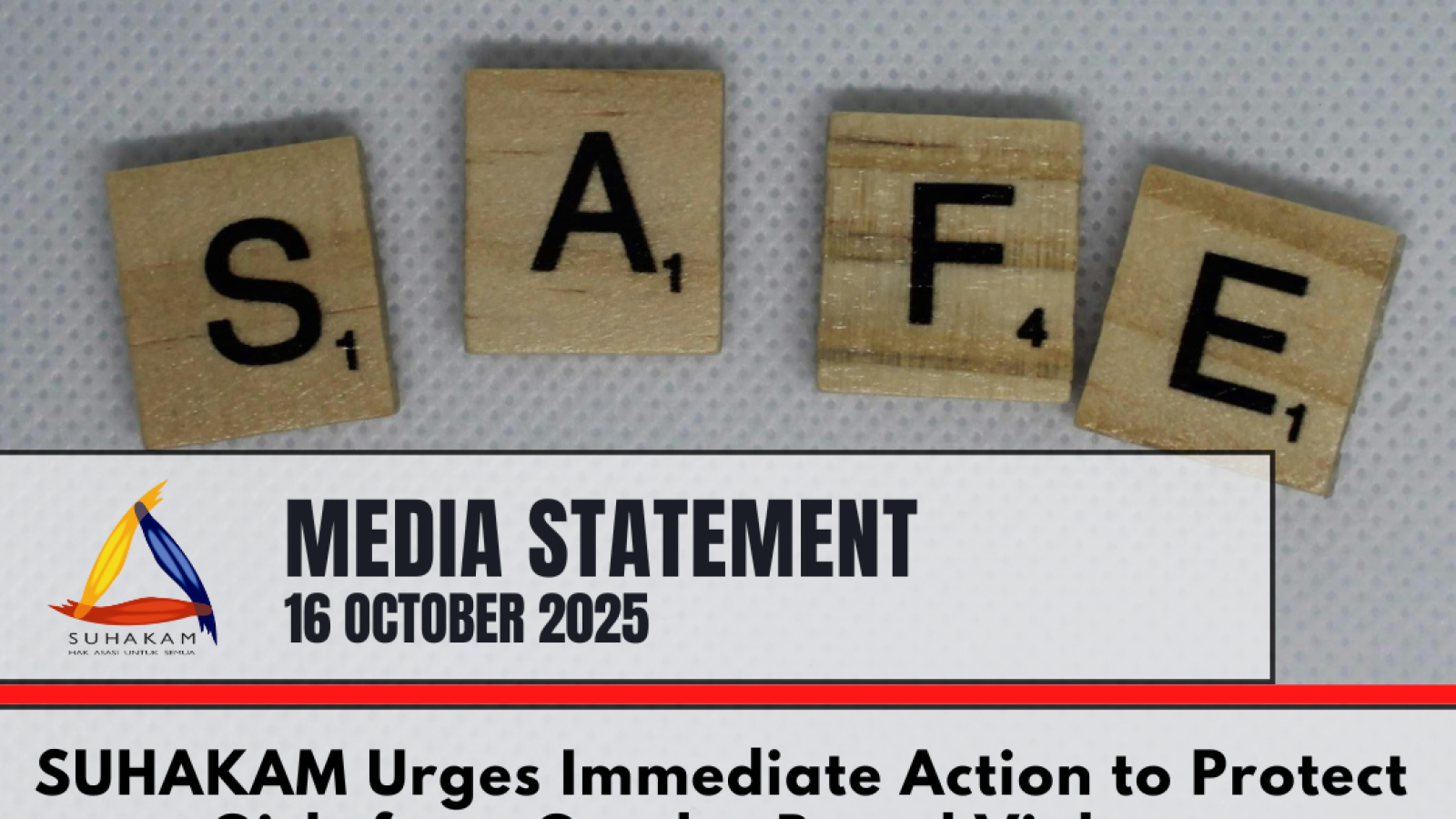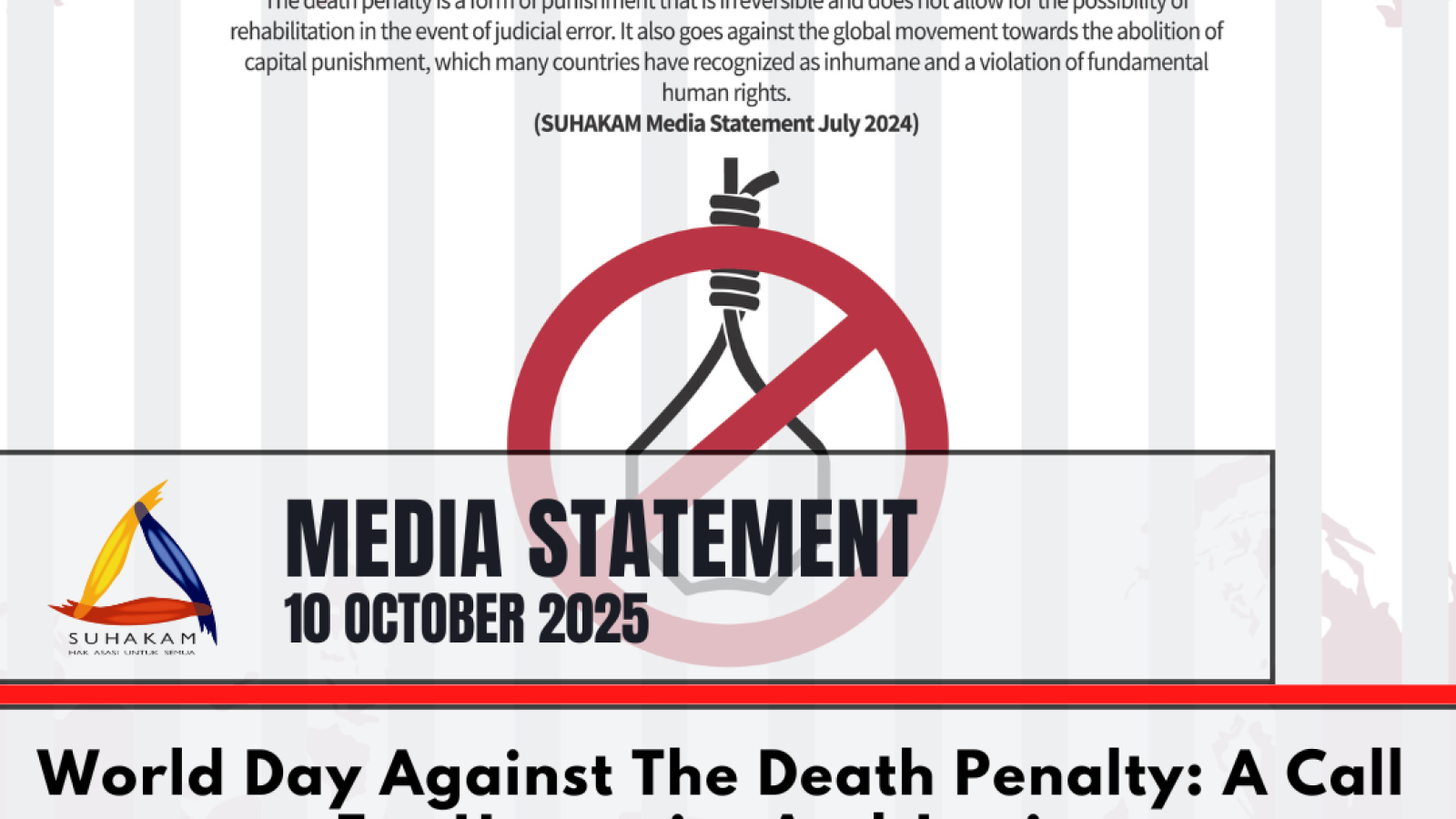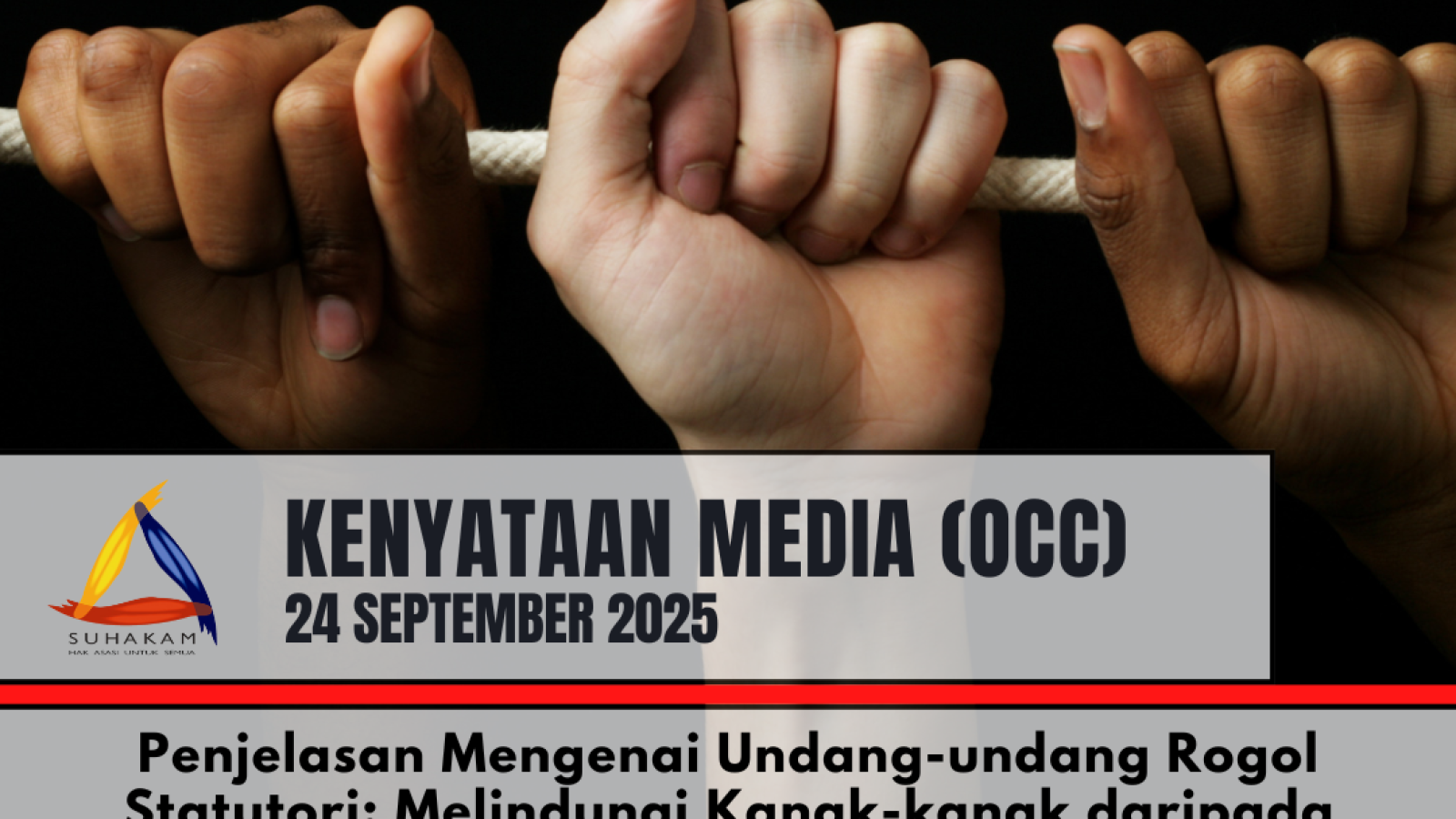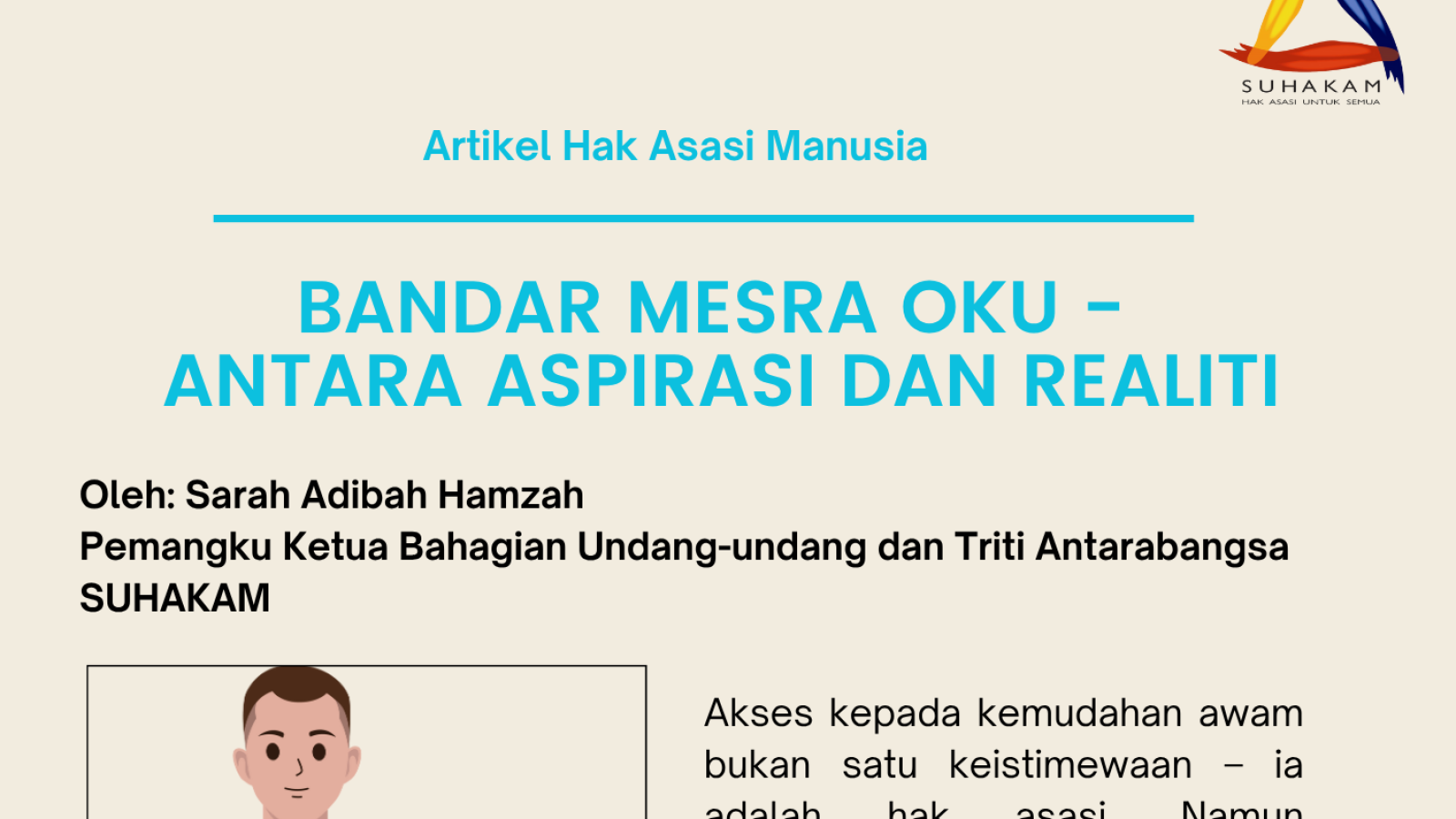Oleh: Sarah Adibah Hamzah
Pemangku Ketua Bahagian Undang-undang dan Triti Antarabangsa
SUHAKAM
Akses kepada kemudahan awam bukan satu keistimewaan – ia adalah hak asasi. Namun realitinya, ramai Orang Kurang Upaya (OKU) di Malaysia masih bergelut dengan pelbagai cabaran akses dalam kehidupan harian – daripada pengangkutan awam dan ruang rekreasi, sehinggalah ke peluang pekerjaan. Walaupun Konvensyen Mengenai Hak Orang Kurang Upaya (CRPD), Akta OKU 2008 dan Undang-Undang Kecil Bangunan Seragam (UKBS) telah memperuntukkan hak tersebut, pelaksanaannya masih belum menyeluruh.
Pengenalan Isu
Suruhanjaya Hak Asasi Manusia Malaysia (SUHAKAM) melihat isu ini sebagai keutamaan dalam usaha membina bandar yang benar-benar inklusif. Sejak Ogos 2024, SUHAKAM telah menjalankan tinjauan audit hak asasi ke atas Pihak Berkuasa Tempatan (PBT) di seluruh Semenanjung Malaysia untuk menilai tahap pelaksanaan hak asasi di peringkat akar umbi.
Forum Kerajaan Tempatan: Jaminan Akses dan Hak
Sebahagian dapatan dan perbincangan penting ini telah dikongsi dalam program “Forum Kerajaan Tempatan: Jaminan Akses dan Hak” anjuran SUHAKAM pada 20–21 Mei 2025. Dalam ucapannya, Pesuruhjaya SUHAKAM, Puan Nazira Abd Rahim, menekankan bahawa peranan PBT adalah selari dengan mandat hak asasi manusia – memastikan semua lapisan masyarakat termasuk OKU mendapat peluang dan akses yang setara. Katanya, hak akses OKU tidak boleh lagi dilihat hanya dari sudut fasiliti fizikal seperti ramp, tandas, tempat letak kenderaan semata-mata sebaliknya perlu meliputi aspek pendidikan, teknologi, pengangkutan, maklumat dan ruang ibadah.
YBhg. Dato’ Mohd Fadli Mohd Kenali, Ketua Pengarah Jabatan Kerajaan Tempatan (JKT), pula menyatakan bahawa PBT perlu berperanan bukan sahaja sebagai pentadbir pembangunan, tetapi juga sebagai ejen perubahan sosial. Katanya, infrastruktur mesra OKU adalah satu kemestian, bukan pilihan, dan kerjasama pelbagai pihak adalah asas untuk mencapai aspirasi Malaysia MADANI.
YB Mohd Azlan Helmi, EXCO Komunikasi, Multimedia dan NGO Negeri Perak pula mengiktiraf bahawa cabaran utama PBT termasuk kekangan kewangan, kesan perubahan iklim dan peningkatan kos. Walau bagaimanapun, ini tidak boleh dijadikan alasan untuk mengabaikan golongan rentan seperti OKU dan warga emas. Beliau mencadangkan penyelesaian kreatif seperti kerjasama swasta, pelancongan komuniti dan inovasi teknologi.
Majlis Perbandaran Manjung: Inklusiviti Melangkaui Infrastruktur
Hasil daripada tinjauan pada Ogos 2024, SUHAKAM mendapati Majlis Perbandaran Manjung (MPM) bukan sahaja menyediakan kemudahan fizikal mesra OKU, tetapi turut menganjurkan program sosial inklusif berskala nasional dan antarabangsa.
Semasa forum tersebut, wakil MPM, Ts. Mohd Rohaizan bin Abd Aris turut berkongsi bahawa pada September 2023, MPM telah menjadi tuan rumah kepada Program Sukan Komuniti Orang Kurang Upaya (SUKOM-OKU) Manjung 2023. Program tersebut julung kali diadakan merupakan anjuran Majlis Paralimpik Malaysia, sempena Hari Malaysia. MPM merupakan PBT pertama dipilih sebagai tuan rumah acara ini, dengan sokongan daripada MKBOKU, KPKT dan KBS. Program ini bukan sahaja mengetengahkan penyertaan aktif OKU dalam sukan komuniti, tetapi membuktikan bahawa sukan mampu menjadi ruang untuk memperkasa, membina keyakinan dan memecah stigma sosial.
MPM juga telah terpilih sebagai antara tiga PBT oleh UNDP Malaysia (selain Mersing dan Sipitang) dalam program khas pemulihan sistem pelancongan pasca pandemik COVID-19. Melalui pemilihan ini, MPM membuka peluang kepada NGO tempatan untuk mencadangkan projek yang inklusif dan berimpak. Salah satu projek yang berjaya diketengahkan ialah PULIH ART – program yang memfokuskan kepada memperkasakan pelajar OKU dalam eko-pelancongan melalui seni visual.
Program ini melibatkan pelajar pendidikan khas dari SK Seri Bayu (umur 6–12 tahun) yang dibawa ke lokasi pemuliharaan alam semula jadi dan terlibat dalam aktiviti seperti:
• Pelepasan anak penyu ke laut,
• Lawatan ke pusat konservasi,
• Bengkel seni visual dikendalikan oleh NGO LAKAR di Laman Karya Lumut,
• Hasil seni seperti akrilik, kolaj dan diorama berinspirasikan penyu — dengan tiga karya terbaik dipilih untuk menghargai kreativiti pelajar.
Program lain yang turut dilaksanakan bersama UNDP termasuk:
• LAKAR – pencucian dan pembersihan laut,
• KUASA – pemeliharaan kawasan paya bakau.
Semua ini membuktikan bahawa MPM bukan sekadar membina infrastruktur, tetapi membina budaya inklusiviti dan pemberdayaan OKU secara holistik.
Inovasi Lain oleh MPM
MPM turut berkongsi inovasi yang dilaksanakan, antaranya
• Bollard Mesra Wheelchair (BMW) – membenarkan laluan kerusi roda tetapi menghalang motosikal memasuki taman awam.
• Tempat letak kereta khas, ramp berspesifikasi MS 1184, laluan terus ke padang, dan tandas khas OKU.
• Pelekat kenderaan percuma dan diskaun 50% untuk keluarga yang menjaga OKU.
• Tindakan tegas ke atas penyalahgunaan kemudahan OKU, termasuk oleh kakitangan sendiri.
Dari segi pembangunan sosial:
• Program SUKOM-OKU Manjung, forum eko-pelancongan OKU bersama UNDP dan NGO seperti PULIH ART, LAKAR dan KUASA.
• Projek seni visual melibatkan pelajar OKU pendidikan khas dan aktiviti luar seperti pelepasan anak penyu serta kelas seni di Laman Karya Lumut.
MPM juga berjaya memperoleh pengiktirafan Bandar Mesra OKU melalui usaha Jabatan Perancangannya.
Dapatan Lawatan Lapangan SUHAKAM
Sebagai sebahagian daripada audit hak akses, SUHAKAM turut menjalankan lawatan ke Terminal Amanjaya (Ipoh), rumah ibadat (Masjid Ubudiah dan Gereja St. John Anglican), lokasi pelancongan seperti Kellie’s Castle dan Istana Kenangan, serta pusat kraftangan persendirian iaitu KZ Kraf Enterprise.
Antara pemerhatian:
• Terminal Amanjaya menyediakan laluan tactile, kaunter khas dengan petugas mahir bahasa isyarat, dan kemudahan naik bas mesra OKU.
• Rumah ibadat masih memerlukan sokongan seperti kitab braille dan jurubahasa isyarat untuk khutbah Jumaat.
• Tempat pelancongan warisan menghadapi cabaran struktur dan status pemuliharaan yang mengehadkan akses OKU – justeru SUHAKAM mencadangkan pendekatan kreatif atau teknologi untuk menjadikan tempat-tempat ini lebih mesra OKU.
• KZ Kraf belum pernah menggaji pekerja OKU tetapi telah menerima lawatan kanak-kanak OKU Pemulihan Dalam Komuniti (PDK). Selain daripada menyediakan latihan kemahiran kepada kanak-kanak OKU, perusahaan ini berpotensi untuk mewujudkan peluang pekerjaan khusus kepada komuniti OKU.
Seruan Bertindak
Sungguhpun wujud dasar dan undang-undang yang baik, kejayaan sebenar pembinaan bandar inklusif hanya akan dicapai apabila pelaksanaan dilakukan secara menyeluruh, konsisten dan berpaksikan hak asasi manusia. SUHAKAM menyeru agar dapatan forum ini tidak hanya kekal sebagai wacana, tetapi diterjemah kepada dasar, tindakan dan pembaharuan di peringkat tempatan.
Kejayaan MPM membuktikan bahawa inovasi, semangat kepimpinan dan kolaborasi antara kerajaan, NGO dan komuniti adalah penting ke arah negara yang inklusif. Jelas daripada perkongsian daripada MPM ini membuktikan bahawa kejayaan mewujudkan bandar mesra OKU bukan bergantung semata-mata kepada dana atau undang-undang, tetapi juga, kepimpinan berwawasan di peringkat PBT, gabungan kerjasama antara kerajaan, NGO dan komuniti, dan penerapan inovasi reka bentuk sejagat secara menyeluruh. Ianya juga menekankan pentingnya, koordinasi dasar antara agensi, pemantauan menggunakan piawaian antarabangsa WHO dan pengiktirafan kepada PBT yang mengambil langkah berani dan kreatif.
Pada akhirnya, kemajuan sesebuah bandar bukan hanya diukur melalui bangunannya yang tinggi atau jalannya yang luas, tetapi keupayaannya untuk memastikan tiada seorang pun warganya terpinggir daripada akses yang adil dan saksama.










